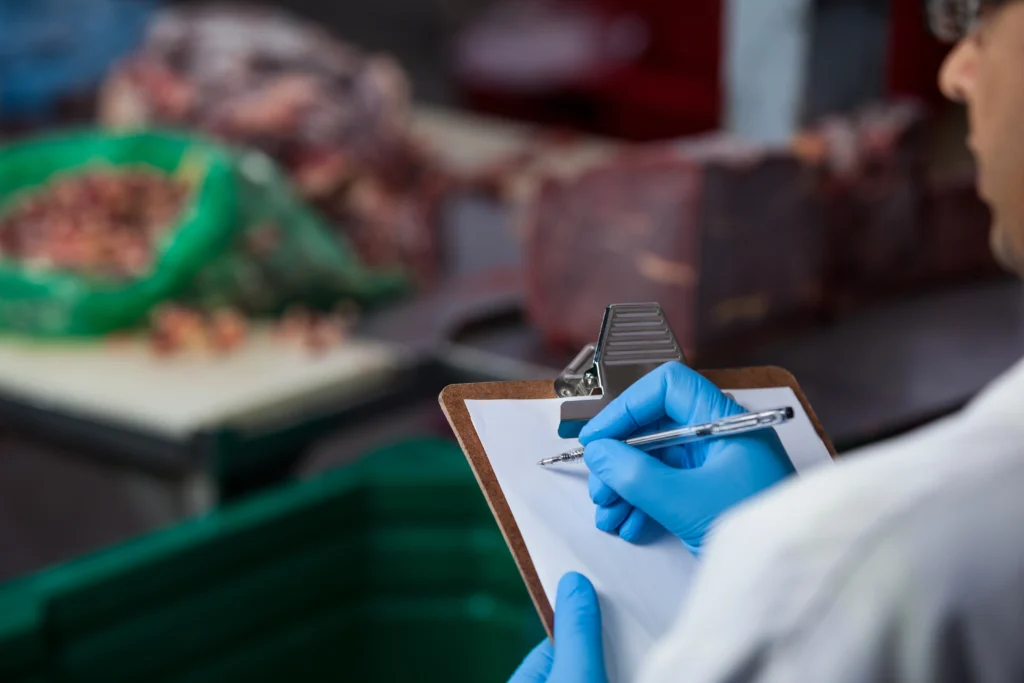A terrifying and deeply unsettling incident has occurred in India, where several children became seriously ill after consuming a meal served at their school, which contained a dead snake. This shocking discovery has raised serious concerns about food safety and hygiene standards in educational institutions across the country. The event, which took place in a government school, has not only caused physical distress to the children involved but has also sparked an outcry from parents, health officials, and local communities. It highlights the importance of ensuring that children receive nutritious, safe meals in an environment where their well-being should be the top priority. With the discovery of a snake in the school meal, questions are now being raised about the effectiveness of current food safety protocols and what can be done to prevent such incidents in the future.

The Incident and Immediate Aftermath
The incident took place in a rural school in India, where children were served a mid-day meal as part of the National Mid-Day Meal Scheme (MDMS), which provides free food to millions of students in government schools. As the children sat down to eat, several of them began to feel ill shortly after consuming the meal. Initially, the symptoms appeared to be common digestive discomfort, but the situation quickly escalated when one of the teachers noticed something unusual in the food. Upon closer inspection, it was discovered that the meal contained a dead snake, which had somehow been cooked along with the food.
The discovery of the snake sent panic through the school, and the affected children were quickly rushed to a nearby hospital for medical attention. Fortunately, none of them were reported to have suffered life-threatening injuries, though some experienced nausea, vomiting, and stomach cramps. The incident has left both the children and their parents traumatized, with many demanding accountability from the school authorities and the officials overseeing the meal program.
The National Mid-Day Meal Scheme and Its Importance
The National Mid-Day Meal Scheme (MDMS) was introduced by the Government of India in 1995 as an initiative to improve the nutritional status of children in schools, especially those in rural and underprivileged areas. The scheme provides free meals to children in government-run schools with the aim of addressing malnutrition and improving school attendance. For many children in rural India, the mid-day meal is often the only substantial meal of the day, making it a crucial part of their nutrition.
The MDMS has been credited with helping reduce hunger and promoting learning among children, but this recent incident has brought attention to some serious shortcomings in its implementation. While the scheme has benefited millions of students, it has also faced criticism over the years regarding the quality and safety of the meals served. This alarming incident involving a dead snake highlights the need for better food safety practices in schools and an urgent review of how meals are prepared, stored, and served.

Investigating the Causes and Responsibility
An investigation into the incident is underway, with local authorities and health officials working to determine how the dead snake ended up in the school meal. Preliminary reports suggest that the snake may have been inadvertently cooked with the food, possibly due to improper handling or contamination during food preparation. Experts speculate that the snake could have been present in the raw ingredients before the food was cooked, or it might have entered the kitchen through poor sanitation practices.
Initial investigations are focusing on the school’s kitchen staff and their adherence to food safety protocols. Local health inspectors have visited the school to review the conditions in which the food was prepared and served. One theory is that the snake may have been hiding in the vegetables or other raw ingredients used to prepare the meal, which were not thoroughly inspected before being cooked. While some argue that the fault lies with the kitchen staff, others point to the lack of oversight and regulation of the Mid-Day Meal Scheme, particularly in rural schools where resources may be limited.
This incident also raises larger questions about the training of kitchen staff in food safety and hygiene. The school authorities are under immense pressure to provide answers, and the parents of the affected children are demanding accountability. Many have called for an overhaul of the system, including stricter monitoring, better training for food handlers, and more rigorous safety checks to prevent such incidents from occurring in the future.
Calls for Reform and Stronger Regulations
In the aftermath of this incident, calls for reform have been growing louder. Parents, education activists, and food safety experts have urged the Indian government to strengthen the regulations surrounding school meal programs and ensure that food safety standards are strictly enforced. The MDMS, which is implemented in schools across the country, requires regular inspections, food quality checks, and sanitation audits to ensure that the meals are safe for children. However, the recent incident has revealed significant gaps in the system.
Advocates for food safety have emphasized the need for more rigorous monitoring at every stage of the meal preparation process—from sourcing the ingredients to serving the final dish to children. There are calls for the introduction of more frequent health and hygiene audits of kitchens in schools, as well as the implementation of a robust system to track the safety of the food served. Some have suggested that schools explore alternative models, such as sourcing meals from certified off-site vendors, where food safety standards are more tightly regulated.
There is also a growing demand for better training for school staff and cooks to ensure that they are well-equipped to handle food safely and identify potential risks. Many believe that such incidents could be avoided with better awareness and education around food safety. Additionally, there have been suggestions that schools should implement a transparent complaint mechanism, where parents and students can report concerns about the quality and safety of meals without fear of retaliation.

The Role of the Government in Ensuring Food Safety
The Indian government plays a central role in regulating the National Mid-Day Meal Scheme and ensuring the safety of food served in schools. While the scheme is intended to provide essential nutrition to children, it is the responsibility of the authorities to ensure that food safety standards are adhered to at every level. This includes overseeing food production, distribution, and service, as well as ensuring that adequate resources are available to maintain hygiene and sanitation in school kitchens. The incident has sparked widespread criticism of the government’s failure to ensure proper oversight of the program, and calls for greater accountability have intensified. Some have argued that the government should establish a more robust regulatory framework to ensure that such incidents are not repeated. Additionally, many have urged the authorities to consider reforms in the way schools source and prepare food, as well as the need for a more standardized approach to food safety across the country.
Conclusion:
The discovery of a dead snake in a school meal is an appalling reminder of the potential dangers of food contamination and the importance of maintaining strict hygiene standards in educational institutions. While the children involved in this incident have recovered, the emotional and psychological impact of such a traumatic experience cannot be overlooked. This incident serves as a wake-up call for both the government and school authorities to take immediate action to prevent similar events in the future. To ensure the safety of children and restore public confidence in the National Mid-Day Meal Scheme, it is essential that reforms be implemented swiftly. Improved oversight, better food handling practices, and stricter regulations are necessary to prevent such incidents from occurring again. Only through these measures can the government ensure that the children of India receive safe, nutritious meals that support their growth and education, without the fear of hidden dangers lurking in their food.
Table of Contents
The Kentucky Derby 2025: Meet the Horses Ready to Race for Glory – trendsfocus
100 children fall ill after dead snake reportedly found in school lunch